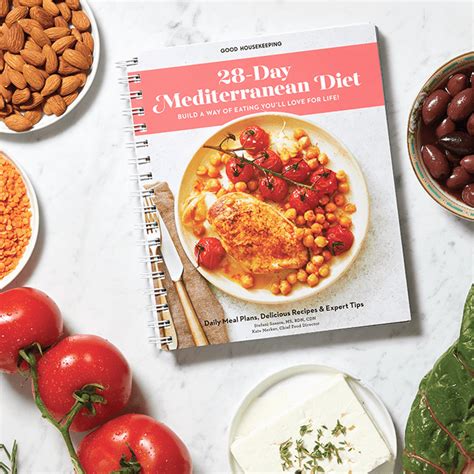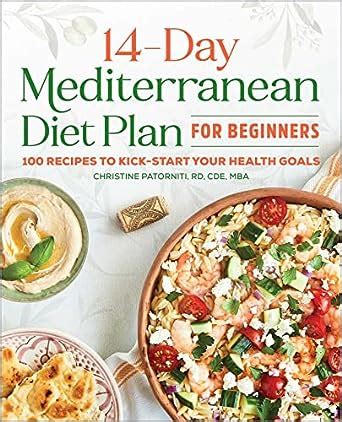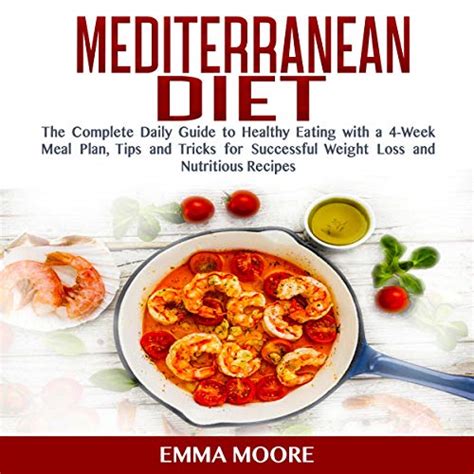Maintaining a healthy diet is crucial for seniors to support overall well-being and promote longevity. As we age, our nutritional needs change, making it essential to focus on balanced meals that provide the necessary vitamins and minerals. This article offers practical ideas for seniors to incorporate nutritious foods into their daily routines, with easy-to-prepare meal options for breakfast, lunch, and dinner, along with healthy snack choices. By understanding the importance of key nutrients, managing portion sizes, and staying hydrated, seniors can enjoy a healthy and sustainable diet. Explore these tips to enhance your eating habits and support a vibrant, healthy lifestyle in your golden years.
Let’s investigate this topic extensively with ujocis.net
1. Importance of Balanced Nutrition in Senior Health
As we age, maintaining balanced nutrition becomes increasingly important for overall health and well-being. Seniors are more susceptible to health issues like weakened immune systems, decreased bone density, and chronic conditions such as heart disease and diabetes. Proper nutrition can help mitigate these risks by providing the essential nutrients needed to support vital bodily functions.
A well-balanced diet rich in vitamins, minerals, and antioxidants can enhance energy levels, improve cognitive function, and maintain muscle strength. Additionally, it aids in managing weight, reducing the risk of malnutrition, and preventing or delaying the progression of age-related diseases. Balanced nutrition also supports digestive health, which is crucial for nutrient absorption and overall vitality. By prioritizing a varied diet that includes all food groups, seniors can ensure they receive the nutrients necessary to live a healthier, more active life. Understanding and implementing balanced nutrition is a key step in promoting longevity and maintaining a high quality of life during the aging process.

2. Key Nutrients Essential for Elderly Nutrition
As seniors age, their bodies have specific nutritional needs to maintain optimal health and prevent age-related conditions. Calcium and Vitamin D are crucial for strong bones, helping to reduce the risk of osteoporosis and fractures. Dairy products, leafy greens, and fortified foods provide these essential nutrients. Vitamin B12, often found in fish, eggs, and fortified cereals, supports nerve function and the production of red blood cells. This is particularly important as the body’s ability to absorb B12 naturally declines with age.
Fiber is another essential nutrient, promoting digestive health and preventing constipation, a common issue among seniors. Foods like whole grains, fruits, and vegetables are rich in fiber and help regulate blood sugar levels. Omega-3 fatty acids, found in fatty fish like salmon and flaxseeds, support heart health and cognitive function, reducing the risk of heart disease and helping to manage inflammation.
Magnesium, essential for muscle function and bone health, is abundant in nuts, seeds, and whole grains. Potassium, crucial for maintaining proper heart function and fluid balance, can be found in bananas, oranges, and sweet potatoes. Seniors can enhance their overall health, prevent deficiencies, and maintain a higher quality of life as they age by focusing on these key nutrients.

3. Easy-to-Prepare Healthy Breakfast Options
A nutritious breakfast is essential for seniors to maintain energy levels and support their overall health. Simple, quick-to-prepare breakfast choices can provide vital nutrients without demanding extensive effort.
Oatmeal topped with fresh fruits and a sprinkle of nuts is an excellent choice. Oatmeal is rich in fiber, which is beneficial for digestive health. Adding fruits, such as berries, enhances the intake of vitamins and antioxidants.
Another swift and satisfying breakfast option is Greek yogurt topped with a handful of granola and sliced bananas. This combination provides a balanced blend of protein, calcium, and probiotics, contributing to strong bones and a healthy digestive system.
For those who prefer savory options, scrambled eggs with spinach and whole-grain toast make a nutrient-dense meal rich in protein, iron, and fiber.
Smoothies are also a versatile and convenient option; blending spinach, banana, Greek yogurt, and a scoop of protein powder creates a drink full of vitamins, minerals, and protein. These breakfast ideas ensure seniors start their day on a healthy note.

4. Nutritious Lunch Ideas for Seniors
A nutritious lunch is crucial for seniors to maintain their energy and support their overall health throughout the day. Simple, balanced meals, featuring a variety of food groups, can provide the essential nutrients without requiring extensive preparation time.
A hearty salad, featuring mixed greens, grilled chicken, cherry tomatoes, cucumbers, and a sprinkle of feta cheese, is a great choice. Adding a drizzle of olive oil and balsamic vinegar not only enhances the flavor but also provides healthy fats, which are beneficial for heart health.
For a simple and nutritious lunch, try a whole-grain wrap brimming with lean turkey, creamy avocado, crisp lettuce, and colorful bell peppers. This combination provides a powerhouse of protein, fiber, and healthy fats, making it a balanced meal that promotes muscle maintenance and digestive well-being.
A bowl of vegetable soup, paired with a whole-grain roll, offers both comfort and nourishment. Loaded with vegetables like carrots, spinach, and beans, this meal is a rich source of vitamins, minerals, and fiber. These nutrients contribute to feelings of fullness and satisfaction, making it an ideal choice for seniors.
Quinoa bowls offer another versatile choice, blending quinoa with roasted vegetables, chickpeas, and a light tahini dressing. This meal is a powerhouse of protein, fiber, and essential nutrients, fostering overall health and vitality.
5. Healthy Snack Choices to Support Energy Levels
Seniors can maintain their energy levels and overall health by incorporating healthy snacks into their diet. Nutrient-rich snacks are essential for preventing energy dips and supplying the body with vital vitamins and minerals throughout the day.
Almonds, walnuts, and sunflower seeds are excellent choices for snacks. These nuts and seeds are packed with healthy fats, protein, and fiber, which provide sustained energy and keep hunger at bay. A small handful of mixed nuts offers a convenient and satisfying snack.
Fresh fruits, such as apples, oranges, and berries, are excellent snack options. Their natural sweetness, abundance of vitamins, and high fiber content make them healthy choices. To further enhance the protein content and make the snack more filling and balanced, consider pairing it with a small piece of cheese or a spoonful of nut butter.
A creamy and nutritious snack, Greek yogurt topped with a sprinkle of granola or fresh fruit is a delicious choice. Packed with protein and probiotics, it supports healthy digestion and gut function.
A satisfying and healthy snack option is hummus with sliced vegetables. Carrots, celery, or bell peppers are all tasty choices to pair with the hummus. Hummus offers plant-based protein and fiber, while the vegetables provide a satisfying crunch and a variety of vitamins.
These convenient, healthy snack options are simple to make and contribute to consistent energy levels, fostering a vibrant and active lifestyle for seniors.
6. Dinner Recipes That Promote Longevity
Dinner is a vital meal for seniors, offering a chance to include nutrient-rich foods that contribute to longevity and overall health. Meals featuring lean proteins, whole grains, and vegetables can boost heart health, preserve muscle mass, and strengthen the immune system.
One simple and effective dinner option is baked salmon with a side of quinoa and steamed broccoli. Salmon is packed with omega-3 fatty acids, which are known for their heart-protective benefits, while quinoa offers a complete source of protein and essential amino acids. Broccoli adds a boost of fiber, vitamins, and minerals.
Another nutritious choice is a stir-fry made with tofu, mixed vegetables, and brown rice. Tofu provides plant-based protein, while the variety of colorful vegetables ensures a wide range of vitamins and antioxidants. Brown rice, a whole grain, contributes fiber and energy-sustaining carbohydrates.
A Mediterranean-inspired dish, such as grilled chicken with a side of roasted vegetables and a small portion of whole-grain couscous, is also a great option. This meal offers a balanced mix of protein, fiber, and healthy fats, promoting heart health and supporting overall longevity.
These dinner recipes are not only delicious but also easy to prepare, helping seniors enjoy meals that contribute to a long and healthy life.
7. Incorporating More Vegetables and Fruits in Daily Meals
For seniors, incorporating more vegetables and fruits into their daily meals is crucial for boosting their nutritional intake and promoting overall health. These foods are packed with essential vitamins, minerals, fiber, and antioxidants, which play a vital role in maintaining a robust immune system, supporting healthy digestion, and lowering the risk of chronic diseases.
Incorporate vegetables into every meal. For breakfast, try adding spinach or tomatoes to scrambled eggs or peppers to an omelet. Lunch offers opportunities to include a variety of colorful vegetables in salads or soups. Boosting the nutritional value of sandwiches and wraps is easy with the addition of vegetables like carrots, celery, or bell peppers.
For a balanced dinner, strive to fill half your plate with vegetables. Roasted or steamed options like broccoli, zucchini, or sweet potatoes make delicious and nutritious side dishes. Stir-fries and casseroles offer another great way to incorporate a variety of vegetables into a single meal.
Incorporate a serving of fruit into every snack and meal. Fresh fruits, such as apples, berries, and oranges, can be enjoyed alongside yogurt, oatmeal, or salads. Smoothies offer a convenient way to consume a variety of fruits, and even vegetables, for a nutrient-rich beverage.
By making these adjustments, seniors can enjoy a diverse and nutrient-ric
8. Tips for Hydration and its Role in Elderly Nutrition
Staying well-hydrated is crucial for the health and well-being of older adults. Adequate hydration supports a wide range of bodily functions. However, as we age, our sense of thirst can decline, making it essential to be mindful of our fluid intake and ensure we drink enough.
Older adults should make it a habit to drink water frequently throughout the day, even if they don’t feel thirsty. A general recommendation is to consume at least eight 8-ounce glasses of water per day. However, individual water needs can differ depending on factors like health conditions, physical activity levels, and the surrounding climate.
Besides water, other beverages can aid in hydration. Herbal teas, milk, and low-sodium broths are all good options. Including water-rich foods such as cucumbers, oranges, and soups can also boost your fluid intake.
Keeping track of your hydration is essential. Signs that you may be dehydrated include a dry mouth, dark urine, and dizziness. Seniors should be especially aware of situations that can increase their fluid needs, such as hot weather or illness.
Maintaining proper hydration helps support digestion, kidney function, and skin health. It also aids in regulating body temperature and preventing urinary tract infections. By prioritizing hydrat
9. How to Manage Portion Sizes for Aging Adults
Managing portion sizes is crucial for aging adults to maintain a healthy weight and ensure they are getting the right amount of nutrients without overloading their system. As metabolism slows with age, adjusting portion sizes can help prevent weight gain and manage chronic conditions.
One effective strategy is to use smaller plates and bowls. This visual trick can help control portions and prevent overeating. Aim to fill half the plate with vegetables, a quarter with lean protein, and a quarter with whole grains. This balanced approach supports nutrient intake while keeping calorie consumption in check.
Listening to hunger and fullness cues is also important. Eating slowly and paying attention to feelings of satiety can prevent overeating. Seniors should try to eat regular meals and snacks throughout the day to avoid excessive hunger and the temptation to overeat.
Using measuring cups and a food scale can help in accurately assessing portion sizes, especially when preparing meals. Additionally, incorporating high-fiber foods like fruits, vegetables, and whole grains can help with feeling full and satisfied, making it easier to manage portion sizes.
By implementing these practices, seniors can better manage their portion sizes, support their nutritional needs, and maintain a healthy weight.
10. Practical Tips for Making Healthy Eating Sustainable
To make healthy eating a sustainable habit, adopt practices that integrate seamlessly into your daily routine for long-term success. Begin by planning your meals and snacks in advance to prevent impulsive, unhealthy choices. By creating a weekly meal plan and shopping list, you can maintain a balanced diet and minimize the temptation to rely on processed or fast food options.
To keep meals exciting and ensure a diverse intake of nutrients, include a variety of foods. Experimenting with new recipes and seasonal produce can make healthy eating more enjoyable and less repetitive. Preparing meals in bulk and freezing portions can save time and make it easier to maintain healthy eating habits.
Cooking more meals at home can be a healthy and beneficial habit. Homemade meals allow for greater control over ingredients and portion sizes compared to restaurant or takeout options. Engaging in meal prep activities, like chopping vegetables or marinating proteins ahead of time, can simplify the cooking process.
Staying hydrated is crucial, so always have a water bottle nearby and include water-rich foods in your meals. Remember, occasional treats are fine; the key is balance and moderation for a sustainable, healthy eating approach. These simple tips can help seniors establish and maintain a healthy lifestyle.
Adopting a balanced diet and making nutritious food choices are essential for seniors to support overall health and well-being. By incorporating key nutrients, managing portion sizes, and staying hydrated, seniors can enjoy improved energy levels and longevity. Embracing practical tips for sustainable eating can make healthy living more manageable and enjoyable, ultimately contributing to a vibrant and active lifestyle in the later years.
ujocis.net

